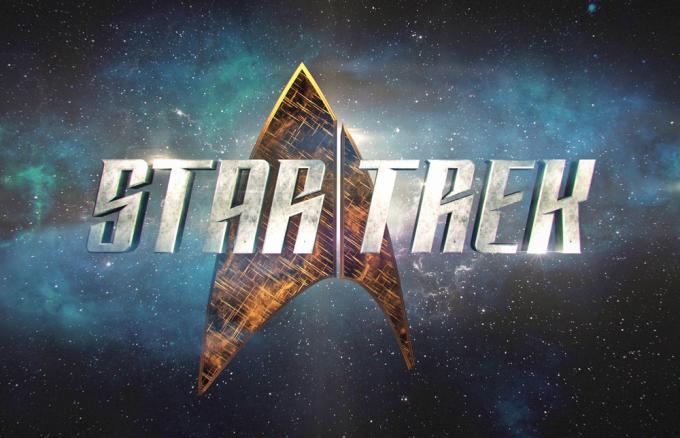T-minus zero | Image: NASA Kennedy, CC BY-SA 2.0
OSIRIS-REx Launches!
Roll on, 2018: OSIRIS-REx is heading for Bennu! Thursday evening, a ULA Atlas V with a peculiar-yet-effective single solid booster rocket climbed out of Earth’s gravity well on its way for a rendezvous with an asteroid. After a picture-perfect launch to Earth orbit, a second burn of the rocket’s Centaur second stage carried the craft up to its 22,000 mile-per-hour escape velocity. In about a year’s time, we’ll see OSIRIS-REx again very briefly, so it can steal a little of Earth’s inertia and fling itself off toward Bennu. In August of 2018, it’ll arrive at the asteroid, and after carefully entering into an orbit around it, map its entire surface for a couple of years before mission control decides just where to take a sample for return to Earth in 2023. There are two main reasons you should care about this mission. First, Bennu is a primordial asteroid, so if it successfully brings back a large sample, it should help us really understand the way the Solar System formed; second, Bennu just might hit us one day — in 2135 it’ll fly pretty close to Earth. It won’t hit us then, we know that for sure, but it might get its orbit bent a little by our gravity well, and, well, we’re not sure if that means it’ll hit us later or not. BUT if we know all about Bennu, then you know, maybe we’ll know how to move it about so it doesn’t hit us. Reason one is a better reason, but reason two is still interesting. And to top it all off, the mission has come in at least $30 million under budget, meaning more funds for further science (and, you know, pesky contingency pans for if and when something goes wrong). Anyhow, that’s about all the OSIRIS-REx news we’re likely to get for another year, so until then, fare thee well. If you’re curious about the mission, head on over to asteroidmission.org.
Saying Goodbye to Jack

It’s official: the “courageous” folks at Apple have decided to do away with the 3.5mm audio jack in favour of, well, nothing actually. In an announcement most people either thought of as “frustrating” or “who cares, I use android,” the company referred to its decision as coming down to one thing: “courage.” Of course that’s industrial grade nonsense, as it takes literally zero courage to do whatever you think will make your company the most money, and you can be certain that everyone in earshot rolled their eyes the moment it was said. Apple’s going to rake it in by licensing its proprietary “lightning” connector technology to anyone who wants to be able to make peripherals for its new phones, and peripherals companies like Belkin are going to rake it in by making things like a $40 adapter so users can access basic functionality like charging and listening to music at the same time. Meanwhile Apple’s selling its $150 “AirBuds,” which appear to be slimline bluetooth “jawbones” that you put in both ears so you can look like “that guy” to both sides of the bus. But who knows, maybe it’ll eventually lead to bluetooth headphones that have a long battery life, decent sound, and don’t cost the equivalent of a firstborn child sacrificed under a blood moon (I see you, Beats by Apple), so that when they come for my 3.5mm jack, there’ll actually be an alternative worth shelling out for. A guy can dream.
Star Trek Turns 50

Star Trek turned 50 this week, with the much-beloved show celebrating fifty years since the “second” pilot aired on September 8, 1966. Actually, the episode aired two days earlier in Canada, on CTV, but we won’t make a fuss because we’re rather polite like that. And I say the second pilot because the first — which featured captain Christopher Pike and which was later incorporated into the first season, two-part episode “The Menagerie” — was rejected. It was thanks to Lucille Ball that we even have Star Trek, because she personally funded the second pilot, “Where No Man Has Gone Before,” after the first was rejected. So if you’ve ever loved Star Trek, say a silent thanks to Lucille Ball (and Desi Arnaz) for pushing TV science fiction where it had never gone before. And if you’ve ever wondered what the world would be like without Star Trek, then maybe it’s worth a wander over to Wired for a great piece by Hugo Award winner Charlie Jane Anders on just that topic.
ICYMI
Because this is a six-days-a-week blog and you’re a busy person, here’s some links to the things we posted just in case you missed any of them:
- On Monday I told you not to “candle” your ears
- On Tuesday I explained that the so-called “EmDrive” is still kicking around
- On Wednesday I took a look at the claim that “intelligence is inherited from mothers” and found it wanting
- On Thursday, I celebrated fifty years of Star Trek with a few reminiscences of my own, and
- On Friday, Elle wrote a letter to Lena Dunham about how hard it is to be real without being a jerk
If you missed any of them, check them out!
Best of the Rest
And because things happen all week even If I’m not around to cover them, here’s your weekly linkspam:
- A month from the end of its mission, Rosetta found Philae in a crack on comet 67P
- Rosetta has also discovered complex organic molecules in the “dust” from 67P
- The Mars InSight lander got a new launch date of 2018
- Author Tom Wolfe has decided against all evidence that evolution can’t explain humans
- Yosemite’s getting another 400 acres of protected space
- An EU court has ruled that linking to copyright infringing materials is somehow copyright infringement
- Facebook spent all week trying to censor an incredibly famous photo of the realities of war, and
- The anti-vax doctor Bob Sears is facing disciplinary action for “gross negligence,” which sounds about right.
Finally, I’ll leave you with the trailer for a new science-fiction film from Netflix called ARQ, which seems like a pretty cool cross between Edge of Tomorrow (aka Live Die Repeat), Primer, and Chain Reaction. It airs September 16 on Netflix.
***
That’s all for today. Thanks for reading! Except for the very *very* occasional tip (we take Venmo now!), I only get paid in my own (and your) enthusiasm, so please like This Week In Tomorrow on Facebook, follow me on Twitter @TWITomorrow, and tell your friends about the site!
If you like our posts and want to support our site, please share it with others, on Facebook, Twitter, Reddit — anywhere you think people might want to read what we’ve written. Thanks so much for reading, and have a great week.
***
Richard Ford Burley is a human, writer, and doctoral candidate at Boston College, as well as an editor at Ledger, the first academic journal devoted to Bitcoin and other cryptocurrencies. In his spare time he writes about science, skepticism, feminism, and futurism here at This Week In Tomorrow.

